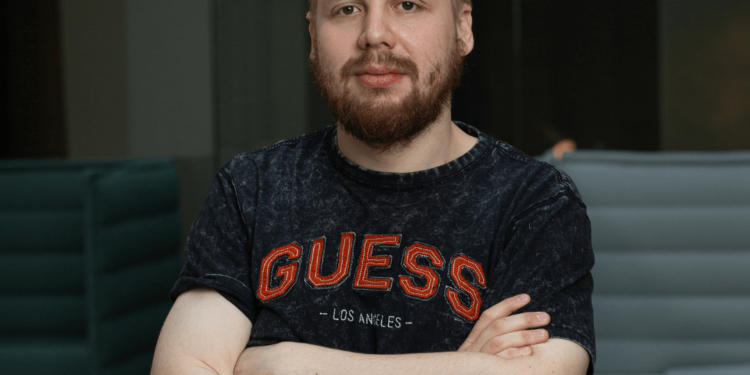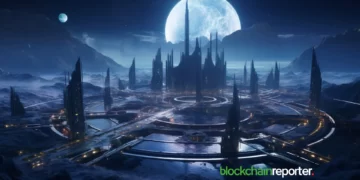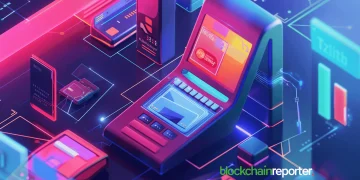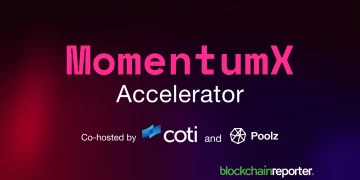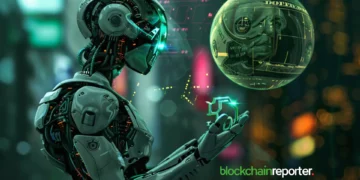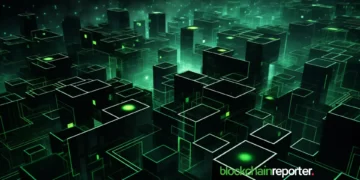Daniil Romazanov is CTO of the blockchain data technology company PARSIQ. He has more than a decade of experience in building complex IT systems in various enterprises and startups, managing, leading and hand-on participating in development and architectural decisions. More than three years ago he joined PARSIQ in the role of a Product Owner, transitioning to CTO position a year later.
Can you share some highlights of your career path that led you to your current role as CTO of PARSIQ?
It was a long journey before I joined PARSIQ. Couple months after graduating from high school I joined a software development company in the role of Junior Developer. Since then I’ve been riding the wave without breaks. I participated in dozens of projects in various roles, mostly hand-on development with occasional twist into team management or development leading.
During this journey I have built backends, frontends, mobile apps, hardware, firmwares, voice assistants and much more stuff in a bunch of industries like consumer electronics, airline support, sales systems, SEO systems, gaming, learning and many more! To be honest, just before I joined PARSIQ I felt like I already found “the place” and had no intention of changing for at least a couple more years! But life works in mysterious ways.
What inspired you to get involved in blockchain technology?
As John C. McGinley said in one of the episodes of Scrubs:
“I became a doctor (read: joined blockchain) for the same four reasons everybody does: chicks, money, power, and chicks”
Jokes aside, there were two things that played the major role in this decision. First of all, I was invited to join the team by Alan D (CTO of PARSIQ at that time), who was my ex-colleague from one of the past employers. Secondly, I’m hungry for an opportunity to learn new things, concepts and paradigms. It was one of them. Somehow, blockchain, as a tech, went past me for a very long time and I finally had the chance to emerge. No regrets to the date.
What do you believe is the transformative potential of blockchain technology?
Blockchain opens many doors, but we should keep in mind that there are actually two separate directions: public and private infrastructure.
As of the public infrastructure (e.g. Bitcoin, Ethereum), we speak about a certain digital and financial freedom, not from your parents, obviously, but at least from the middle man in the form of a bank or/and government. We do not live in a fair world and blockchain helps people in unfair situations to be treated in the same way everyone else does.
Private and semi-private infrastructure is another world that can help many industries to become more transparent and thus efficient. Medicine, supply chains, governments (elections, budget control, etc), logistics, education–almost any industry can benefit from just a simple thing such as immutability.
How does your vision for blockchain align with the mission of Reactive Network?
With all the aforementioned benefits comes a ton of problems, blockchain user experience is still non-existent for a regular user, while blockchain development experience feels like writing software in the 90s. There is this popular concept of the Blockchain Trilemma: scalability, security, decentralization; Pick two. Reality is, there are many more edges to this shape and I’m not entirely sure how many “picks” you get.
Reactive Network mainly targets the development experience, but unironically it directly affects the UX. Reactive helps developers to build more intelligent dApps making them self-aware irregardless of how many blockchains they deployed to. It helps to make dApps cheaper and more efficient by providing a layer to off-load expensive computations to. Reactive closes the gap of “sandboxed” blockchains, allowing dApps to know what happens within or outside their ecosystem. The list goes on…
Where do you see blockchain technology going in the next 5 to 10 years?
We either live the bright future we dreamt of or blockchain is buried under ten billion animal themed meme coins.
Technical wise blockchain has a long way to be massively adopted, as we are now floating in the world of restrictions, unmanageable multi-terabyte nodes, barely/in-accessible data, hundreds of dozens of irrelevant ecosystems, as well as environmental concerns – so many nodes processing the same transactions over and over again, consuming electricity for monkey job. And not to forget about economical obstacles, namely liquidity separation.
If this is not solved within the next ten years IMO it’s a game over, irregardless what crypto freedom lunatics say 🙂
Are there any emerging technologies or trends in Web3 that you think will become particularly influential?
For public infrastructure it should be all sorts of Zero Knowledge Proofs. Only by reducing the infinite cycle of reprocessing every transaction by every participant of the network can we build a sustainable future for blockchain. Most of the other trends I’d categorize as noise unless they (in)directly affect user or developer experience, preferably in a positive way.
How do you cultivate a positive and productive culture within your team?
To address this question, it’s important to note that despite my extensive development background, I lack a hardcore computer science background. However, my team does. My goal is to listen more than I speak. While high-level ideas and decisions may originate from me (or from Rong Kai, CEO of PARSIQ), I strive to provide people with the freedom to fully express their thoughts without being overly intrusive when it’s not necessary. When people aren’t shackled and placed within boundaries, they tend to feel part of something bigger rather than a small, irrelevant part. This approach allows both the team and the product to constantly grow.
What is the most rewarding part of your job as CTO of PARSIQ?
Being a CTO offers numerous opportunities and freedoms, including the ability to constantly learn and try new things, staying on the cutting edge of the market, presenting on stage, teaching others, learning from them, and much more. While this position implies significant responsibilities, the rewards, both personally and professionally, are incomparable.
Any advice you would give to upcoming tech leaders who aspire to innovate in the blockchain space?
Listen more. It’s all about people and your ability to utilize their skill sets and strong sides in the way that both make them happy and favoures value for the company.


